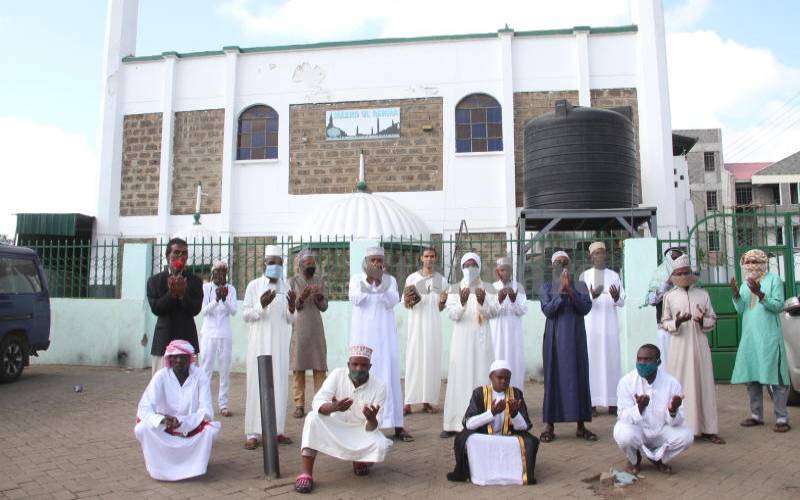×
The Standard e-Paper
Truth Without Fear

Muslim faithful conduct short prayers outside Masjid Ul Rahma in Eastleigh, Nairobi. [Edward Kiplimo, Standard]
We are upon the final 10 days of Ramadhan, which are the most significant in the entire year.